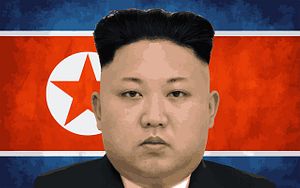“It ain’t over ’til it’s over,” when it involves North Korea. It is worse when the unpredictability of Kim Jong-un is pitted against that of U.S. President Donald Trump. Thus it was entirely foreseeable that Trump’s White House would issue a letter today announcing that the summit planned for June 12 “will not take place.”
First, there is a history of failures with the Koreas summits. Both the 2000 and 2007 Sunshine Policy efforts were aborted due to intransigence on several fronts.
Second, it was only in January that Kim threatened that his nuclear launch button was “always on the table.” In response, Trump boasted that his nuclear button was “much bigger” and “more powerful” than Kim’s. A move from hawkish outbursts to a complete turnaround in favor of negotiations was strong indication that yet another reversal from either of the leaders was possible. The two leaders’ egos were also evident when each claimed playing a bigger role than the other in making the Koreas summit a reality.
Third, the unpredictability was evident when North Korea threatened last week to pull out of the talks if the United States insists on the precondition that Pyongyang completely give up its nuclear weapons.
Pointing its ire at National Security Adviser John Bolton, who favors replicating the Libya model, North Korea said that if Washington “corners us and unilaterally demands we give up nuclear weapons we will no longer have an interest in talks” and “will have to reconsider” attending the Singapore summit. Trump, in his letter, cited the “tremendous anger and open hostility” of North Korea’s response as his reason for calling off the summit.
While Washington cites the Libya model as a good precedent for talks, Pyongyang views it negatively. North Korea is worried that Kim might face the same fate as Libya’s Muammar Gaddafi, who was ousted and killed by Western-aided rebels in 2011, after the 2003 denuclearization-for-economic aid deal neutralized the deterrence factor.
This, along with the endgame of Saddam Hussein in Iraq, means Pyongyang might only agree to cap its nuclear program in return for aid.
Many observers argue that Trump may have complicated the situation further while contradicting Bolton. Issuing a veiled threat, he said: “That (Libya) model…was total decimation. That model would take place if we don’t make a deal.”
According to Stratfor analyst Evan Rees: “The phrasing of the Panmunjom Declaration refers to denuclearization of the peninsula, which could mean movement of U.S. strategic assets, and a phased, rather than rapid denuclearization — which is against what the United States has called for.”
This leaves us wondering about other models that could be used as templates, should the United States and North Korea return to the table (a possibility Trump left open). For example, the Ukraine, Kazakhstan, and Belarus model is similar to Libya, except that none of them had a threat perception or feared actual regime change.
Another example is the Joint Comprehensive Plan of Action involving Iran and ongoing relations with the West – defined as Iran curbing its nuclear advancement program in return for economic benefits, but continue with its atomic program for peaceful purposes. However, after Trump walked out of the deal, even this model is unviable.
North Korea claims it has already demonstrated its commitment by suspending all missile tests, holding peace talks with South Korea, and releasing three American detainees. It also claimed a commitment to denuclearizing the Korean peninsula after the April summit. Though it is still unclear what this entails, Pyongyang has invited the foreign media to witness this month’s dismantling process of its main nuclear test site.
Ultimately, this is not just about the Koreas or a U.S.-North Korea issue. It is a multilayered game of wits that also involves China (and Japan too).
Beijing holds the cards to either play the role of a facilitator or spoiler depending on whether it wants to cooperate or compete with the United States for future global leadership.
However, current China-North Korea ties are far from favorable. Though China has been overshadowed in headlines, beyond two meetings between Kim and President Xi Jinping in April and May, it will be impossible to make progress on denuclearization without Beijing guaranteeing Pyongyang the incentives to give up its weapons, especially protection against a military offensive or any attempts to topple the regime.
Thus, while the “Panmunjom Declaration for Peace, Prosperity and Unification on the Korean Peninsula” is high on rhetoric and low on specifics, its future and the future of U.S.-North Korea talks are mired in a competition of egos, policy differences, and global leadership.
Any outcome may be okay for Washington, including failure. If some progress is achieved, it boosts Trump’s political and diplomatic credentials. If diplomacy fails, Trump will get an opportunity to showcase his tough side and mount pressure on Kim. Both would further Trump’s and his party’s case in the Congressional midterm elections in November.
Similarly, any outcome is okay for Kim too. At its best, it would yield some economic relief and/or political and security-related guarantees, which would be along the lines of the 2013 “Byungjin” or Parallel Development policy of economy and nuclear weapons. At its worst, it serves as an ideal opportunity to recalibrate its ties with China, which again would fall within the realm of the Byungjin strategy.
Both would make North Korea feel like it has punched above its weight.
Dr. N. Janardhan is Senior Research Fellow, Gulf-Asia Programme, Emirates Diplomatic Academy, Abu Dhabi.
































